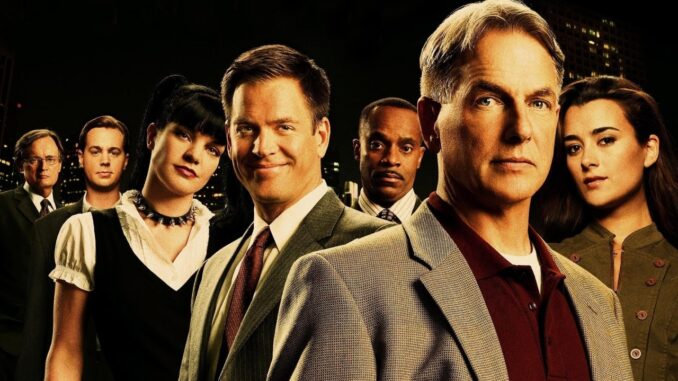
The Medal of Honor. The very phrase resonates with the weight of extraordinary valor, a testament to courage beyond the call of duty, often paid in the coin of ultimate sacrifice. In the procedural world of NCIS, where the line between good and evil is often sharply drawn by a crime, the series has, at times, transcended its genre to explore the profound human stories behind the badges and the bullets. While countless acts of heroism dot its long history, one particular narrative stands out not just for its bravery, but for the gut-wrenching, bittersweet tragedy woven into its very fabric: the story of Lamar Tibbs, Director Leon Vance’s father.
For years, Leon Vance carried a quiet, persistent ache, a wound inflicted not by a bullet, but by a ghost: the memory of a father who, in his mind, had abandoned his family, a man who had vanished without a trace, leaving behind a legacy of shame and a void that no career success could ever truly fill. Lamar Tibbs was a phantom, an absent figure whose supposed desertion cast a long, cold shadow over Vance’s formative years, fueling a drive for perfection and an unspoken bitterness. This was the narrative Vance had built, the truth he had reluctantly accepted, cemented by the lack of any counter-evidence, any whisper of a different story.
The investigation, catalyzed by Gibbs’s relentless pursuit of truth, began as another cold case, a dusty file that promised little more than a resolution to an administrative oversight. But as the layers of time and secrecy were peeled back, a different picture of Lamar Tibbs emerged, one that shattered Vance’s lifelong perception with the force of a tidal wave. Lamar Tibbs, far from being a deserter, was a hero of the highest order, a silent guardian whose act of supreme selflessness in the crucible of Operation Domino, a clandestine mission in Vietnam, had saved his entire unit.
The heartbreaking truth lay in the nature of his heroism: to protect classified information crucial to national security, Lamar had deliberately drawn enemy fire, orchestrating a deception that would mark him as a deserter, ensuring his capture and the successful extraction of his team. His sacrifice wasn’t just physical; it was reputational, familial. He willingly chose to be branded a coward, to live in the shadows, to endure the searing pain of knowing his family would believe the worst, all to safeguard a secret greater than his own honor. He accepted the ignominy, the separation, the lifelong burden of a lie, not for personal gain, but for the greater good, and, perhaps most agonizingly, to shield his son from the dangerous realities of his father’s world.
The moment of revelation, when Leon Vance finally comprehended the magnitude of his father’s sacrifice, was a raw, visceral explosion of emotion. The weight of decades of misunderstanding, of unspoken accusations and deep-seated resentment, crashed down upon him. The man he had scorned, the ghost he had resented, was in fact a giant, a figure of profound courage and silent suffering. The Medal of Honor, presented posthumously, was not merely a recognition of valor; it was a vindication, a eulogy for a life misunderstood, a balm for a wound that had festered for decades. But it was also an agonizing reminder of the lost years, the unsaid words, the father-son bond that could never truly be mended, only belatedly acknowledged across the chasm of death and deceit.
This is the most heartbreaking Medal of Honor story in NCIS history because it transcends the usual narrative of battlefield glory and immediate recognition. It is a tale of a hero who chose obscurity, a father who accepted his son’s contempt to protect him, a sacrifice that extended far beyond the moment of combat, echoing through generations. It forces us to confront the true cost of heroism, not just in blood, but in identity, in reputation, and in the profound, often tragic, misunderstandings that can separate families. Lamar Tibbs's Medal of Honor wasn't just pinned to a uniform; it was pinned to a lifetime of silent suffering, a testament to the fact that sometimes, the greatest acts of courage are those that are never seen, never applauded, and never truly understood until it is heartbreakingly, irrevocably, too late.
